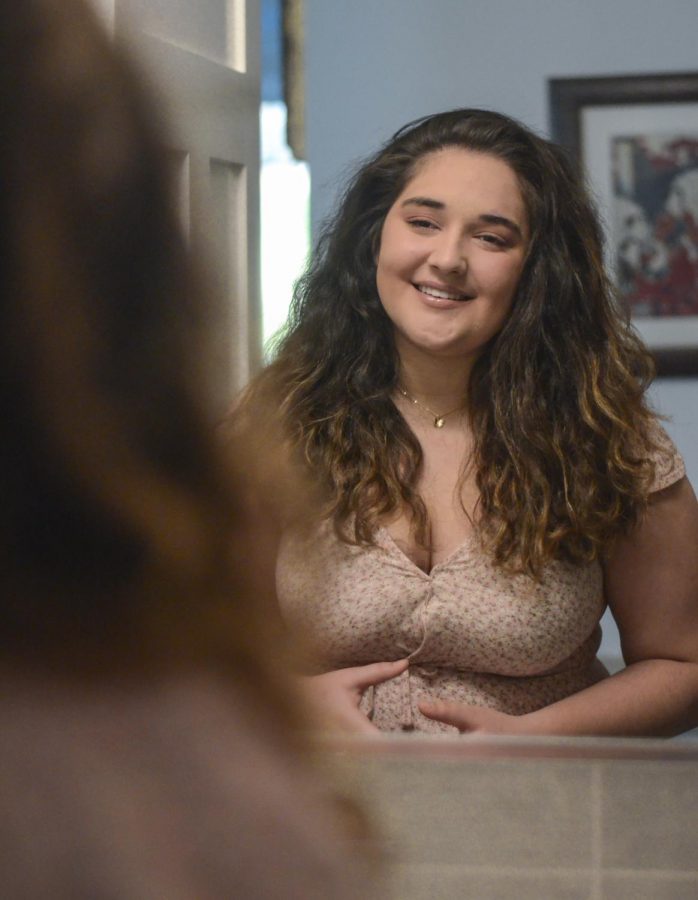When the curtains part and the spotlights blink on, there is first silence on stage. Then, as harmonies fill the air with an operatic boom, the power and passion of the music makes one thing clear: Ruya Ozveren (12) has begun singing.
Whether she’s performing on stage or singing along to tunes in the car, music has been a constant for Ruya since elementary school. As a choral singer, she was introduced to classical music and opera upon meeting her vocal coach in freshman year, which is the area she now focuses on.
“I’ve been singing all my life, and opera for me when I sing—or just classical music, arias in general—is so different. My voice feels bigger and more confident, and I can feel my voice vibrating inside my entire body,” Ruya said.
Confidence and determination, especially when confronted with a nerve-wracking situation, are two of Ruya’s greatest strengths, as upper school vocal music teacher Jennifer Sandusky saw during a masterclass Ruya participated in, where she worked with a vocal clinician in front of other singers.
“When you’re getting up to sing in front of your peers, and then somebody’s going to work with you on the things that you need to get better at in front of your friends—that is a scary thing to do,” Sandusky said. “[But] she got up there and did it, so that in and of itself was an accomplishment—but also how quickly she started to grow and assimilate the things that the clinician was saying … that’s what I mean by the determination.”
While Ruya enjoys the expansive feeling over her own voice emanating out into the world, she also appreciates the opportunity to sing with others, a joint experience that often leads to moments like one during a competition in Portland, when upper school show choir Downbeat sang “lovely” by Billie Eilish.
“It felt really like a family. It’s a really connecting feeling, standing up there, and we were in a semicircle arc—I could hear everyone. And it was a bonding moment where we could all hear our sounds as one voice,” Ruya said.
Throughout her dedication to music, Ruya has also made room for a second passion: neuroscience. Her drive to understand the brain began as a result of a challenging personal moment, when her father experienced a brainstem stroke nine years ago.
“I kept asking questions—what happened to my father, what’s going on—and as an 8-year-old, you don’t understand, you don’t know enough yet,” Ruya said. “And so when I was that young, I just did everything in my power to learn more about the brain, even in the smallest moments.”
Since then, Ruya has pursued neuroscience through a number of research experiences, from working at a neuroscience lab in Turkey and successfully petitioning for equal equipment access for boys and girls to exploring the intersection of mental illness and metabolic psychiatry at Stanford last summer. Beyond the scientific skills she’s gained, Ruya also values realizing how she wants to approach her study of the brain.
“The biggest lessons that I learned from that wasn’t just figuring out what I like and maybe dislike about studying neuroscience, but more about how I want to study it,” Ruya said. “[The experiences] taught me that I want to … [figure] out more about the brain not just by studying [it], but I really wanted to study the brain through its interactions through external platforms and stimuli and the environment.”
And one medium for neural expression that Ruya hopes to study is, of course, music. One moment where Ruya vividly experienced the intersections of her passions came during Downbeat’s Christmas tour, when they visited a home for the elderly with a section for Alzheimer’s and dementia patients.
“You go in there and you sing, and the people [there] make noises; sometimes it might seem disturbing, but it’s really them reliving memories that they can’t remember that’s stimulated by that music,” Ruya said. “It’s something I want to go into, because I want to see that potential there, I want to see how those things connect.”
Ruya’s ardent pursuit of music and neuroscience cascades over into her personality and interactions with friends, who, when asked to describe, always include the word “bubbly.” But while her charisma and vivacity are always prominent, perhaps less noticeable is the intention behind her character.
“It’s more than just that she’s naturally this bubbly person—she really puts effort into it,” close friend Anoushka Buch (12) said. “She’s known hardship, and so she wants to alleviate whatever other people are going through, in whatever way that she can.”
Despite the challenges she has faced in her own life, Ruya prioritizes making those around her feel accepted and heard, as close friend Arusha Patil (12) notes.
“Everyone sees her as this very loud person, but Ruya is one of the best listeners I know, and that’s largely because of how empathetic she is,” Arusha said. “She sees you as a person. She makes an effort to connect with people, and get to know them, because she’s genuinely curious to hear other people and listen to other people.”
And while she’s listening to others, Ruya’s demeanor is unmistakably welcoming, creating a space where others feel comfortable with what Arusha identifies as one of the best things about Ruya: her laugh.
“99 percent of my memories with her are her being embarrassed about herself but also laughing with everyone,” Arusha said. “She likes to make people feel comfortable: even if she turns bright red and she’s at the center of attention, she’ll be fine being at the center of attention, she’ll be fine being laughed at—because she’ll be laughing with you.”
At the end of the day, Ruya isn’t afraid to put herself out there, whether it means enjoying a moment with friends or pursuing her dual passions of music and neuroscience to the fullest—and letting herself feel the resultant exhilaration.
“That feeling of letting go—whether it’s hearing and feeling my voice to the tips of my fingers or feeling it project out into the world, or whether it’s that feeling of finding something new—it’s … addictive and keeps me going,” Ruya said.
This story was originally published on Harker Aquila on February 16, 2021.








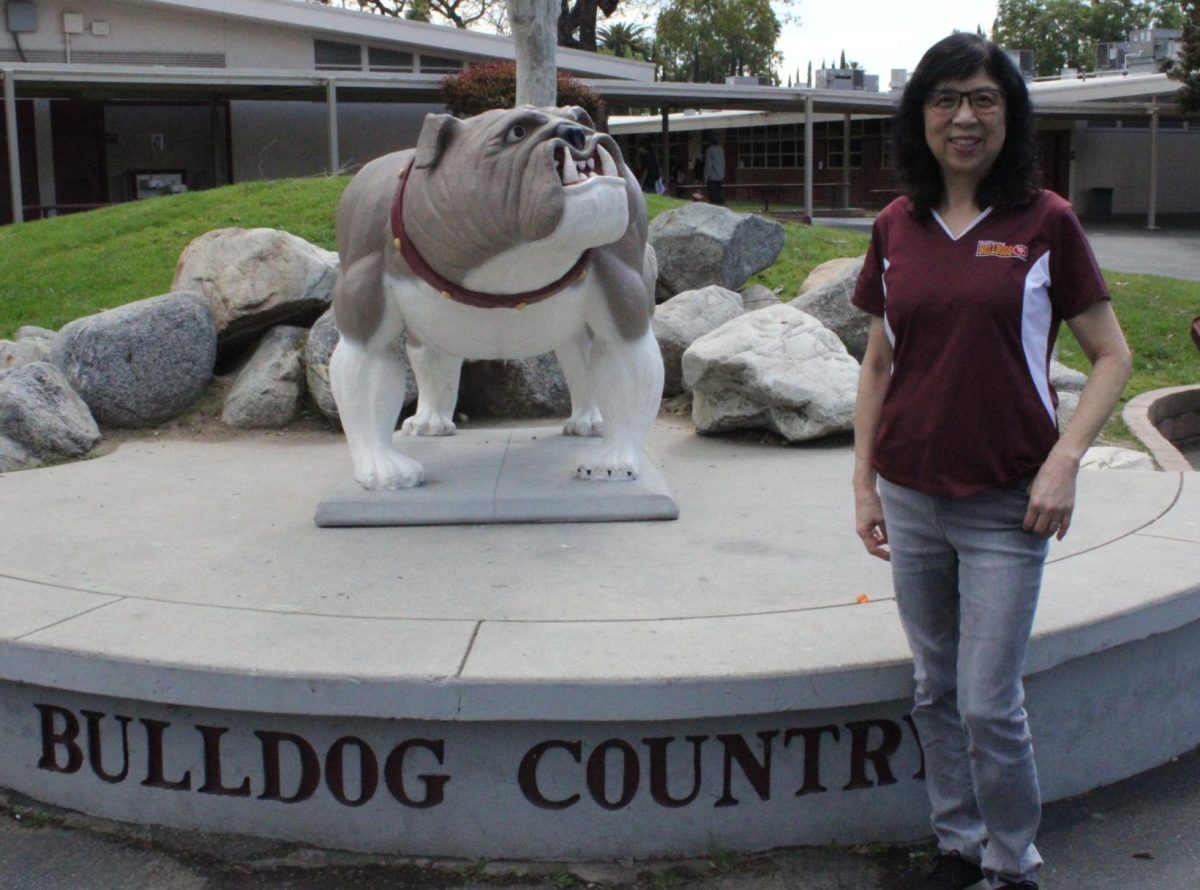


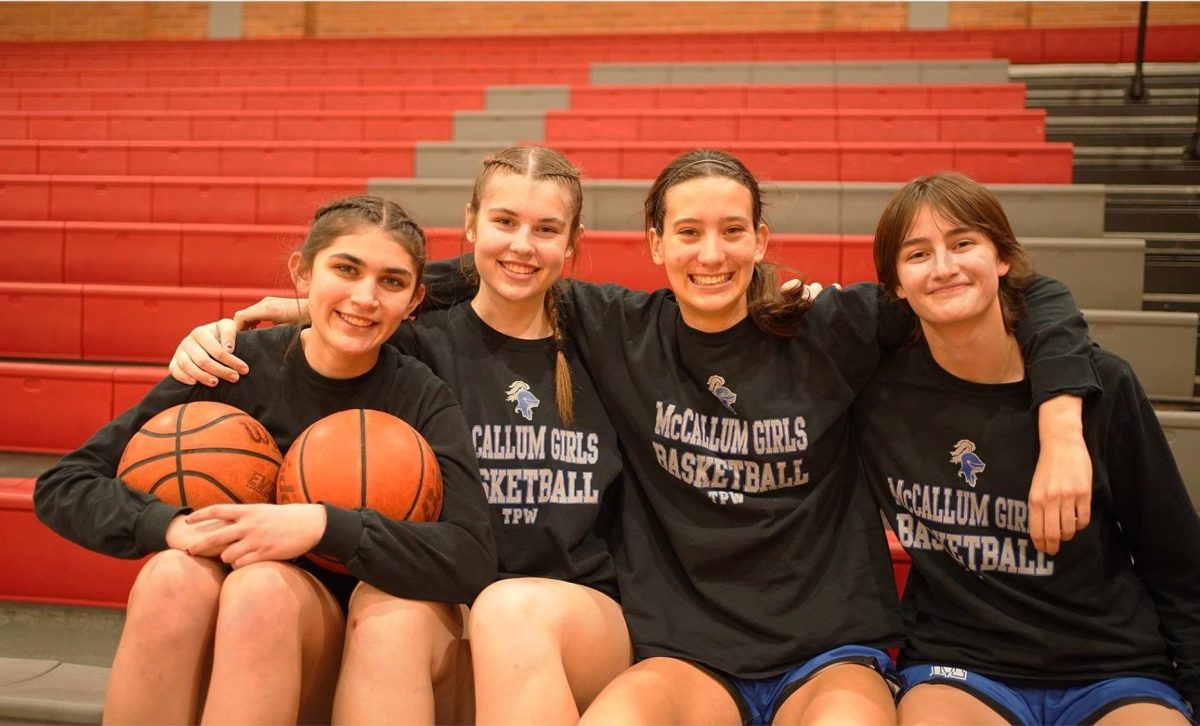
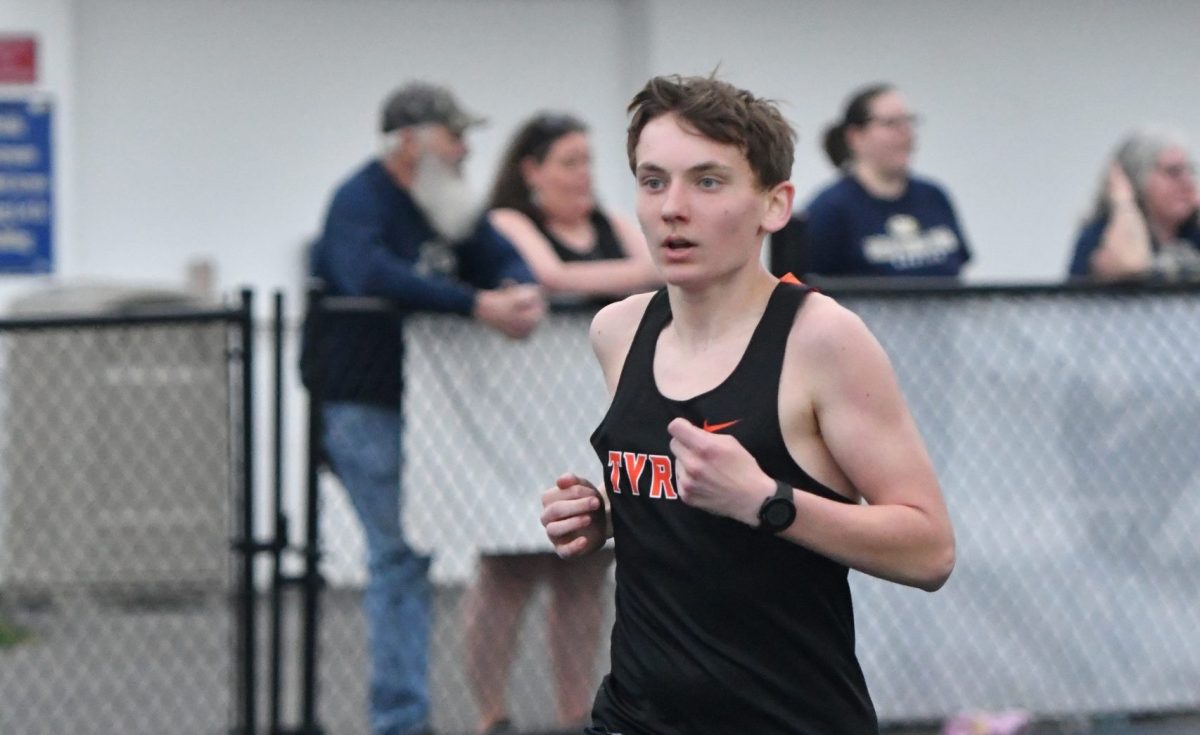

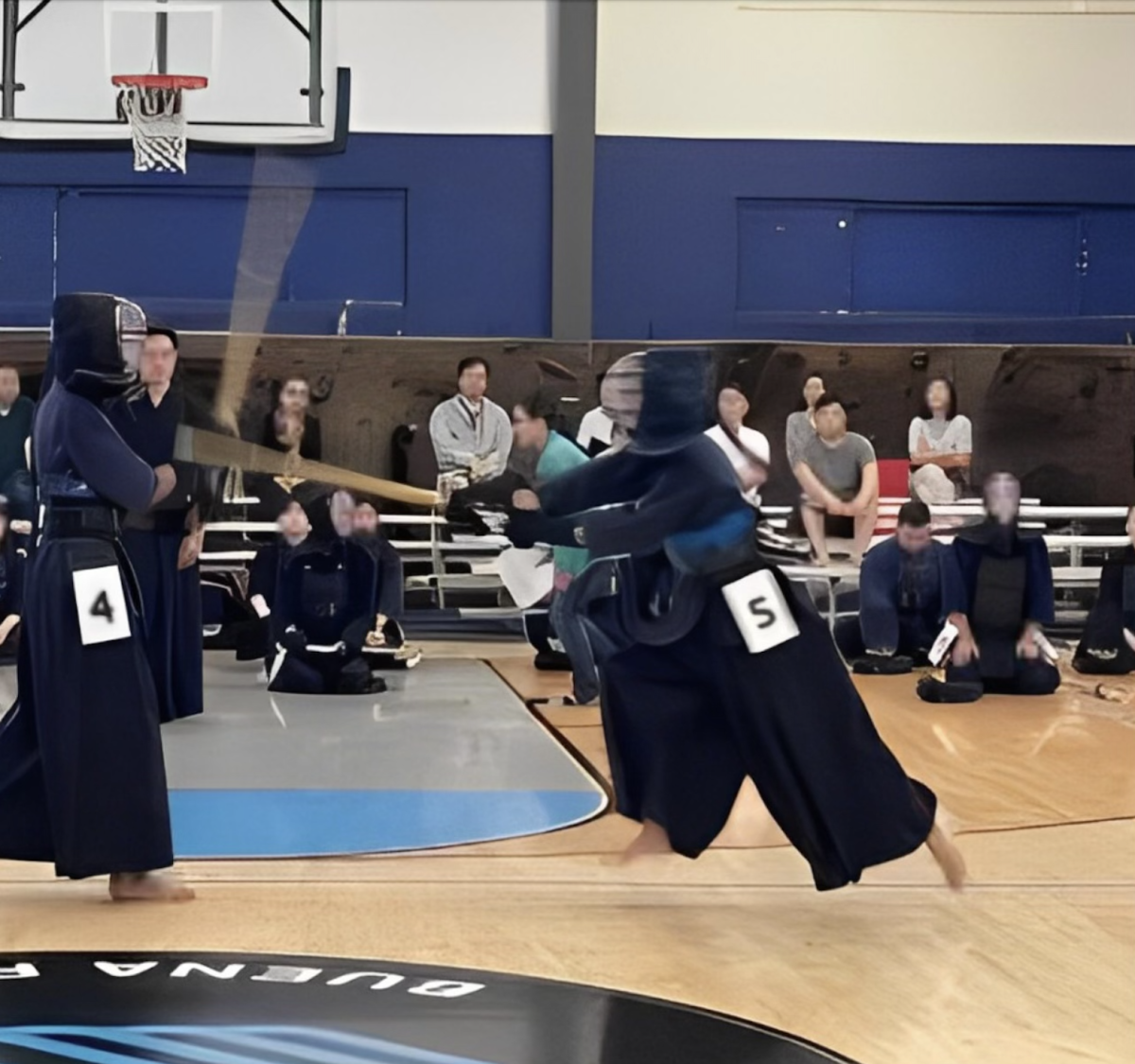

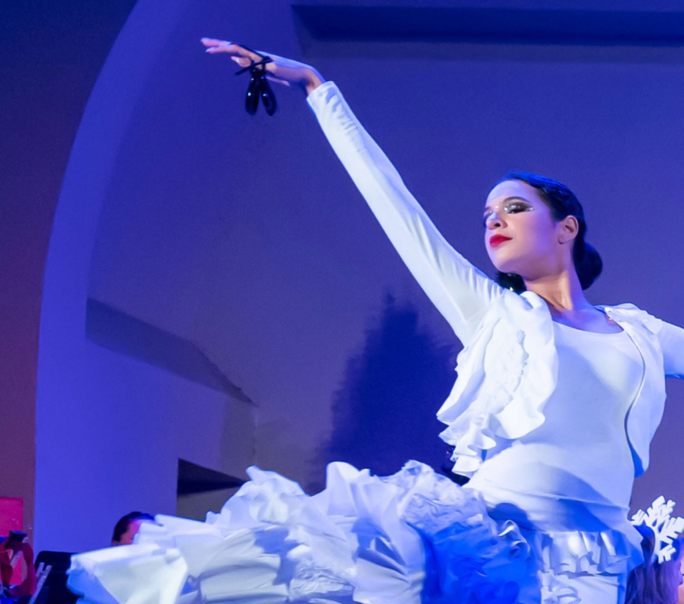
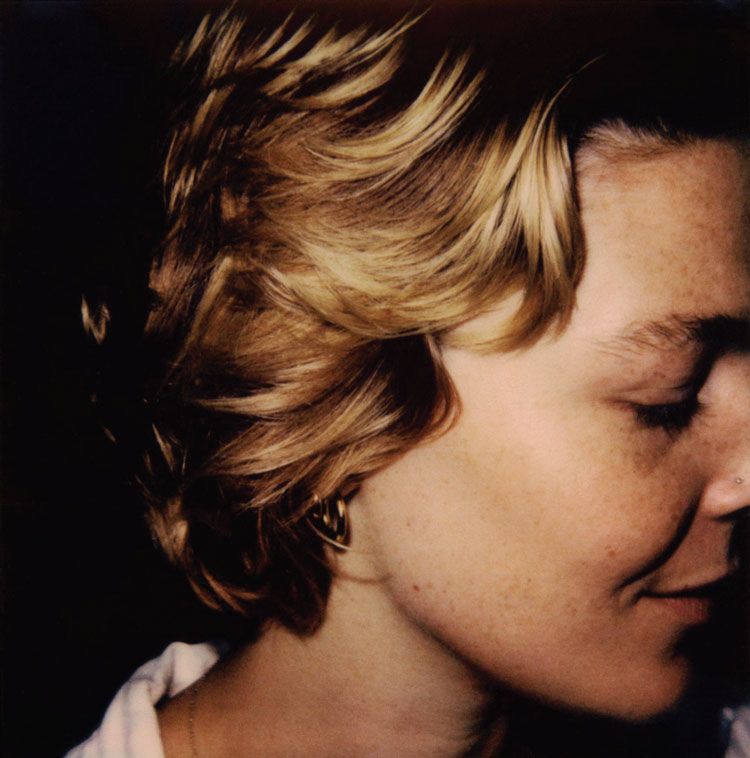













![IN THE SPOTLIGHT: Junior Zalie Mann performs “I Love to Cry at Weddings,” an ensemble piece from the fall musical Sweet Charity, to prospective students during the Fine Arts Showcase on Wednesday, Nov. 8. The showcase is a compilation of performances and demonstrations from each fine arts strand offered at McCallum. This show is put on so that prospective students can see if they are interested in joining an academy or major.
Sweet Charity originally ran the weekends of Sept. 28 and Oct. 8, but made a comeback for the Fine Arts Showcase.
“[Being at the front in the spotlight] is my favorite part of the whole dance, so I was super happy to be on stage performing and smiling at the audience,” Mann said.
Mann performed in both the musical theatre performance and dance excerpt “Ethereal,” a contemporary piece choreographed by the new dance director Terrance Carson, in the showcase. With also being a dance ambassador, Mann got to talk about what MAC dance is, her experience and answer any questions the aspiring arts majors and their parents may have.
Caption by Maya Tackett.](https://bestofsno.com/wp-content/uploads/2024/02/53321803427_47cd17fe70_o-1-1200x800.jpg)
![SPREADING THE JOY: Sophomore Chim Becker poses with sophomores Cozbi Sims and Lou Davidson while manning a table at the Hispanic Heritage treat day during lunch of Sept 28. Becker is a part of the students of color alliance, who put together the activity to raise money for their club.
“It [the stand] was really fun because McCallum has a lot of latino kids,” Becker said. “And I think it was nice that I could share the stuff that I usually just have at home with people who have never tried it before.”
Becker recognizes the importance of celebrating Hispanic heritage at Mac.
“I think its important to celebrate,” Becker said. “Because our culture is awesome and super cool, and everybody should be able to learn about other cultures of the world.”
Caption by JoJo Barnard.](https://bestofsno.com/wp-content/uploads/2024/01/53221601352_4127a81c41_o-1200x675.jpg)





